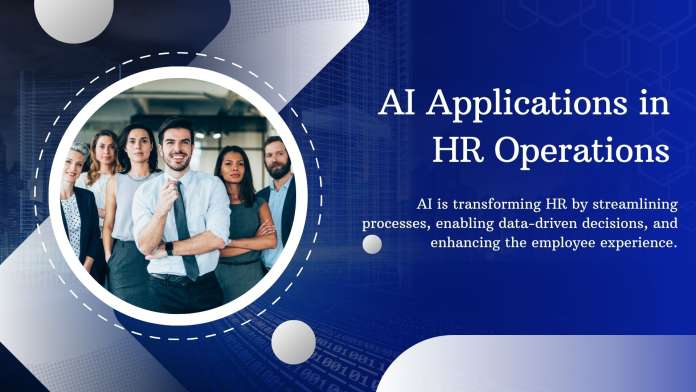Artificial Intelligence (AI) is revolutionizing numerous industries, and Human Resources (HR) is no exception. As the backbone of any organization, HR departments are increasingly leveraging AI to streamline processes, make data-driven decisions, and enhance the overall employee experience. But what exactly makes AI such a game-changer for HR?
The Transformative Impact of AI on HR
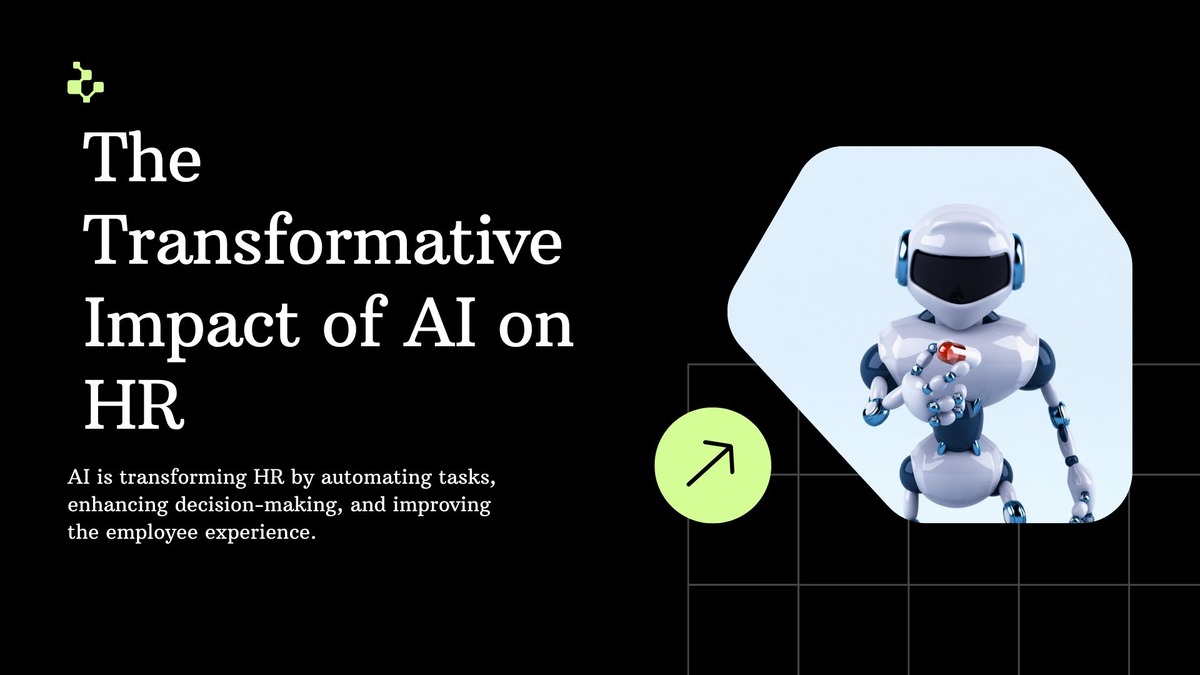
First and foremost, AI brings an unprecedented level of efficiency to HR operations.
-
Streamlining HR Operations with AI:
Traditional methods often involve tedious manual tasks, from sorting through resumes to scheduling interviews. AI-powered tools can automate these tasks, saving valuable time and resources. By eliminating the need for repetitive tasks, HR professionals can focus on more strategic initiatives, such as employee engagement and talent development.
-
Empowering data-driven decision-making:
AI offers unparalleled insights into workforce data. Advanced algorithms can analyze large datasets to identify trends, predict future hiring needs, and even flag potential issues before they escalate These data-driven insights empower HR departments to make more informed decisions, ultimately leading to better outcomes for both the organization and its employees.
-
Enhancing the Employee Journey:
Lastly, the integration of AI into HR systems ensures a more seamless experience for both current and prospective employees. From automated onboarding processes to personalized training programs, AI can make every stage of the employee journey more efficient and engaging.
In summary, the transformative power of AI in HR lies in its ability to enhance efficiency, empower data-driven decision-making, and elevate the overall employee experience. As organizations continue to adopt AI, the role of HR will undoubtedly evolve, paving the way for a more dynamic and innovative workplace.
Streamlining Recruitment with AI-Powered Tools
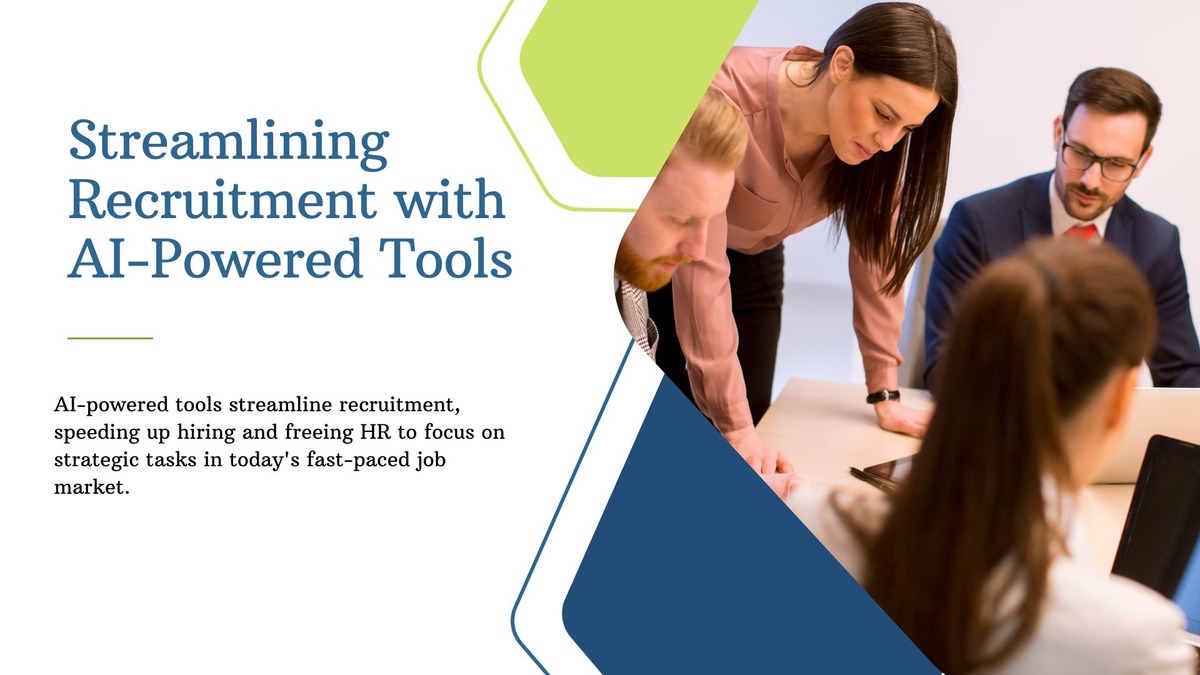
In today’s fast-paced job market, attracting top talent quickly is essential. AI-powered tools are revolutionizing recruitment, making the hiring process faster and more efficient. By leveraging artificial intelligence, HR departments can automate many cumbersome tasks, allowing recruiters to focus more on strategic activities.
-
Rapid Resume Screening
One of the key advantages of AI in recruitment is its ability to sift through vast amounts of resumes in a fraction of the time it would take a human. AI algorithms can scan for specific keywords and qualifications that match job descriptions, quickly narrowing down a pool of candidates. This not only speeds up the process but also ensures a higher accuracy in matching candidate skills with job requirements.
-
Improved Candidate Sourcing
AI tools are also excellent at improving candidate sourcing. By analyzing data from various social media platforms and job boards, these tools identify potential candidates who may not have applied but could be a perfect fit.
-
Enhanced Candidate Engagement
Furthermore, AI-driven chatbots can engage with candidates 24/7, answering their queries and keeping them informed throughout the hiring process. This constant engagement helps in keeping candidates interested and reduces drop-off rates.
-
Preliminary Interview Assistance
Beyond initial screening and sourcing, AI can assist in conducting preliminary interviews through video platforms equipped with facial recognition and voice analysis technology. These tools can assess a candidate’s demeanor, confidence, and overall suitability for the role, offering valuable insights to recruiters.
By integrating AI-powered tools into the recruitment process, companies not only enhance efficiency but also improve candidate quality, ensuring that the best talent doesn’t slip through the cracks.
Enhancing Candidate Experience and Engagement
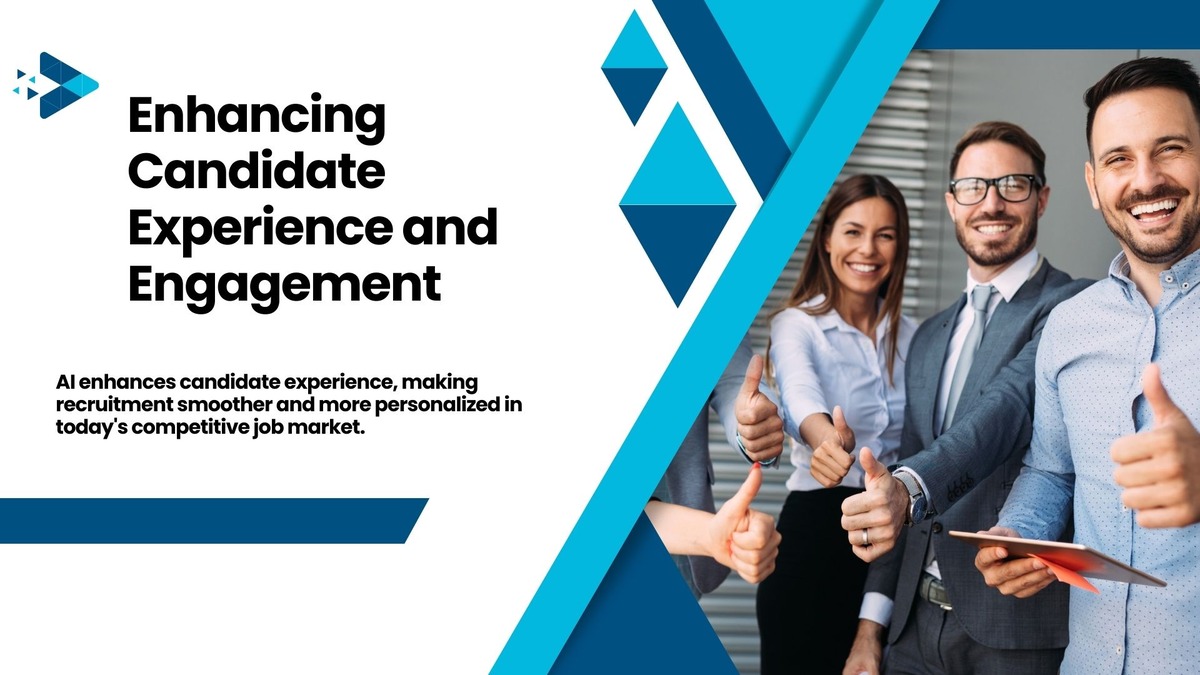
In today’s competitive job market, creating a positive candidate experience is essential for attracting top talent. AI can significantly enhance how HR departments engage with potential hires, making the recruitment process smoother and more personalized.
-
24/7 Support
One of the standout benefits of AI in candidate engagement is its ability to offer 24/7 support. Chatbots, for instance, can answer candidates’ queries at any time, providing instant responses to common questions about job roles, application processes, and company culture. This immediacy not only keeps candidates informed but also demonstrates that the organization values their time and interest.
-
Personalized Communication
Another crucial aspect is personalized communication. AI tools can analyze candidate data to send tailored messages and job recommendations, ensuring that candidates receive information that is relevant to their skills and career goals. This level of personalization helps to build a stronger connection between the candidate and the company, increasing the likelihood of continued engagement throughout the recruitment process.
-
Streamlined Interview Scheduling
Moreover, AI can streamline the scheduling of interviews. Automated systems can coordinate between candidates’ and interviewers’ calendars to find convenient times for meetings, reducing the back-and-forth often involved in scheduling. This efficiency speeds up the hiring process and leaves a positive impression on candidates.
-
Feedback Analysis
Finally, AI can gather and analyze feedback from candidates about their recruitment experience. Understanding their perceptions and pain points allows HR teams to refine their processes, creating an even better experience for future candidates.
By leveraging AI to enhance candidate experience and engagement, companies can not only attract high-quality talent but also cultivate a reputation for being responsive, organized, and candidate-friendly. These improvements can ultimately lead to a more effective and successful hiring process.
Making Data-Driven HR Decisions
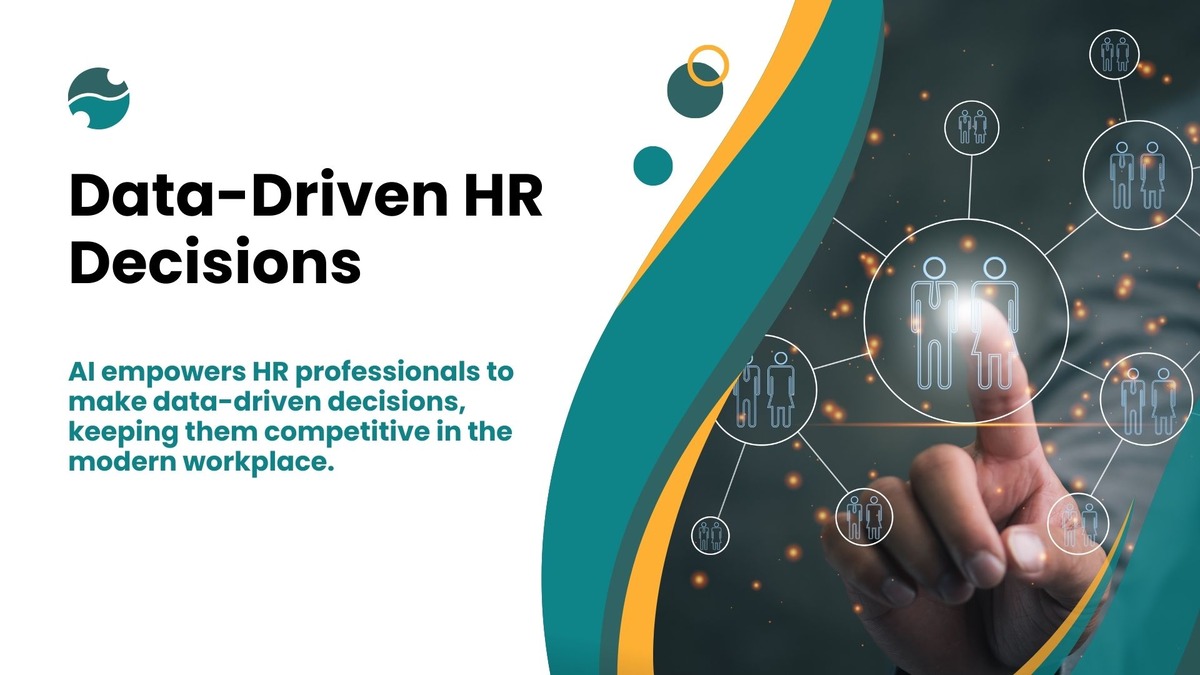
In the modern workplace, making data-driven HR decisions is crucial for staying competitive. AI technology offers a robust solution for HR professionals looking to leverage data to inform their strategies.
1. Analyzing Employee Data: With AI, you can analyze vast amounts of employee data quickly and accurately, uncovering valuable insights that were previously hidden.
2. Targeted Training Programs: For instance, AI can help identify trends in employee performance, enabling managers to pinpoint what drives high performance and address areas needing improvement. This allows for more targeted training programs, ensuring that resources are allocated where they will have the most impact.
3. Predictive Analytics for Retention: Furthermore, AI-driven analytics can foresee potential issues, such as attrition risks, helping HR teams take preemptive actions to enhance employee retention.
4. Enhancing Compensation Strategies: Compensation and benefits are another critical area where AI can be invaluable. By analyzing market trends and internal data, AI can suggest competitive salary packages and benefits, ensuring that your company remains attractive to top talent while maintaining budget efficiency. This level of precision allows HR to create compensation strategies that are both fair and motivating.
5. Reducing Bias in Decision-Making: AI also enhances the decision-making process by eliminating much of the bias that can influence human judgment. With fair and data-backed insights, companies can make more equitable hiring, promotion, and development decisions. This contributes to a more inclusive and diverse workplace, which is increasingly important in today’s global economy.
In summary, AI empowers HR professionals to make quicker, more informed decisions. By leveraging AI tools for data analysis, HR teams can develop strategies that are proactive rather than reactive, fostering a productive, engaging, and balanced work environment.
Integration with Existing HR Systems
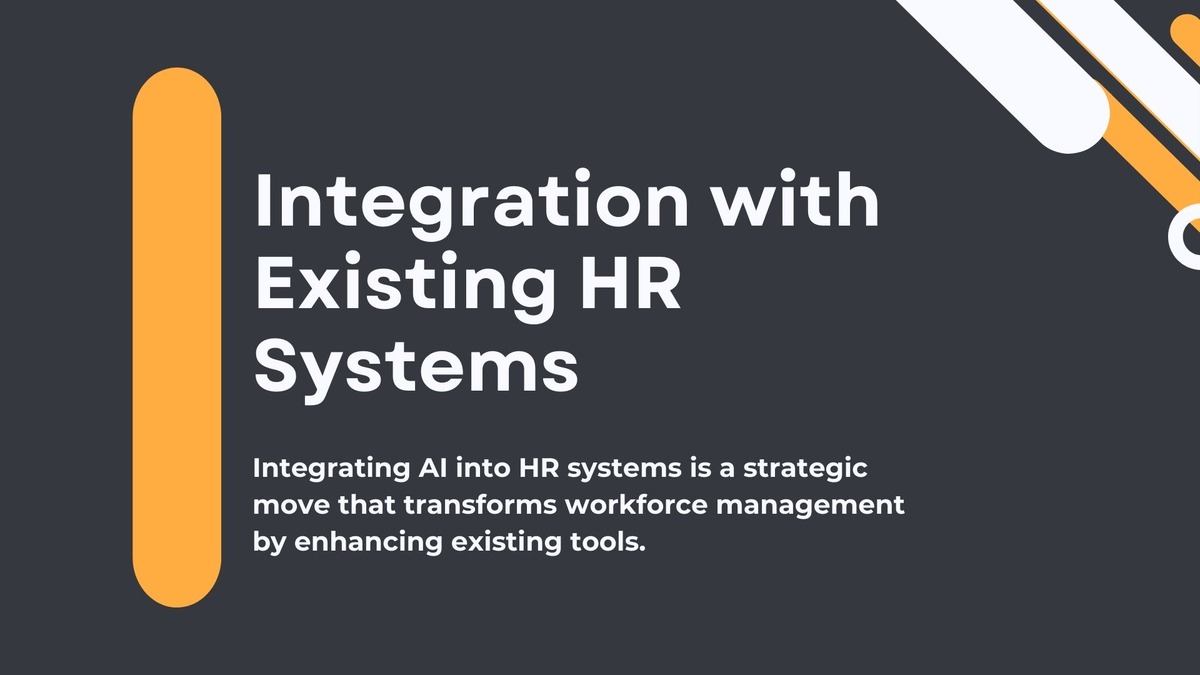
Integrating AI into existing HR systems isn’t just a trend; it’s a strategic move that can revolutionize how organizations manage their workforce. The key lies in seamless integration, ensuring that AI-powered tools work in harmony with the systems already in place.
1.Automation: One of the major benefits is automation. AI can automate repetitive tasks such as resume screening, payroll processing, and employee onboarding. This frees up HR professionals’ time, allowing them to focus on more strategic activities like talent development and employee engagement.
- Data Synchronization: Another advantage is data synchronization. By integrating AI with current HR software, companies can ensure that all data—whether from recruitment platforms, employee performance systems, or payroll—flows smoothly. This unified data landscape makes it easier for HR departments to derive actionable insights and make informed decisions.
- Enhanced Analytical Capabilities: Moreover, AI’s analytical capabilities can enhance the functionality of existing systems. For example, predictive analytics can forecast employee turnover, enabling HR to take proactive measures. Similarly, AI-driven employee feedback tools can be incorporated into current performance management systems to provide real-time insights into workforce sentiment.
- Improved Security: Security is another crucial aspect. Integrating AI with existing systems can enhance data protection. AI algorithms can identify patterns that indicate potential security breaches, helping companies to safeguard sensitive employee information.
5.Compatibility with Existing Platforms: The best part? Many AI solutions are designed to integrate smoothly with popular HR platforms like Workday, SAP SuccessFactors, and ADP. This compatibility ensures that organizations don’t need to overhaul their entire HR tech stack to benefit from AI capabilities
In short, integrating AI with existing HR systems offers numerous advantages, from automation and data synchronization to enhanced security and decision-making capabilities, making it a valuable investment for any forward-thinking organization.
Real-World Success Stories and Benefits
Artificial intelligence (AI) is no longer a futuristic concept confined to tech giants. Many companies across various industries are already using AI in their HR departments with impressive results.
-
Case Study: Unilever
For instance, Unilever, a global consumer goods company, has revolutionized its recruitment process using AI-driven tools. The company employed AI to screen resumes, conduct initial interviews, and even engage candidates. This led to a significant reduction in the time taken to hire new talent, while also improving the quality of the hires. The AI tools helped Unilever sort through thousands of applications quickly and identify top talent efficiently, demonstrating a clear ROI from AI adoption.
-
Case Study: Hilton Worldwide
Another compelling example comes from Hilton Worldwide, a leading global hospitality company. Hilton utilized AI to enhance employee engagement and streamline internal workflows. By integrating AI chatbots, Hilton ensured that employees get immediate answers to their HR-related questions, which previously required manual intervention. As a result, HR staff could then focus on more strategic tasks, boosting overall productivity and employee satisfaction.
-
Impact on Smaller Businesses
In smaller businesses, AI applications in HR have shown notable benefits as well. For example, a mid-sized tech startup leveraged AI to analyze employee performance data. It identified trends and provided actionable insights that led to better management decisions and employee development plans. This resulted in higher employee retention rates and a more motivated workforce.
These stories provide just a glimpse into the transformative potential of AI in HR. By automating routine tasks, offering data-driven insights, and enhancing overall efficiency, AI helps businesses become more agile and competitive. The real-world successes underscore the broad applicability and tangible benefits of integrating AI into HR practices.
Read More: Top 10 Popular SaaS Marketing Blogs in 2024

